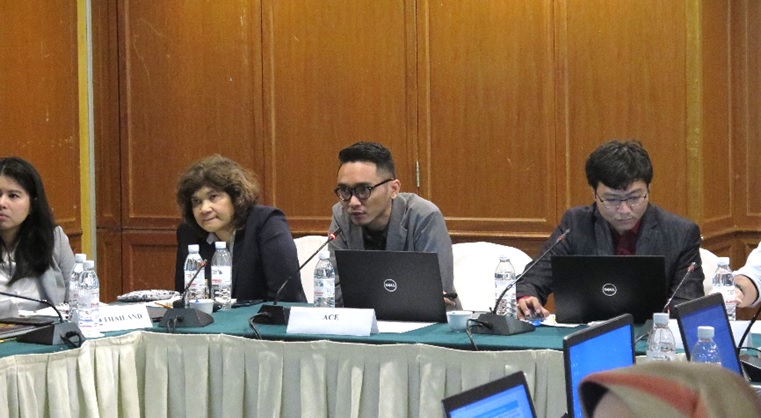[vc_row css=”.vc_custom_1565542682041{margin-right: 0px !important;margin-left: 0px !important;}”][vc_column css=”.vc_custom_1565542696462{padding-right: 0px !important;padding-left: 0px !important;}”][vc_single_image image=”5711″ img_size=”1280×400″ el_class=”banner-event”][/vc_column][/vc_row][vc_row css=”.vc_custom_1565542751414{margin-right: 0px !important;margin-left: 0px !important;}”][vc_column width=”1/4″][/vc_column][vc_column width=”1/2″ css=”.vc_custom_1565622195563{padding-bottom: 50px !important;}”][vc_column_text el_class=”title-event”]Shaping the New Directives on Developing Energy Outlook Scenarios[/vc_column_text][vc_column_text el_class=”date-venue-news”]Phnom Penh, 24 March 2019
[/vc_column_text][vc_column_text el_class=”text-par-news”]The progress on the development of the 6th ASEAN Energy Outlook (AEO6) already passes through the second workshop in March 2019 that focused on shaping the scenarios that need to be developed to foreseeing the Association of Southeast Asian Nations (ASEAN) energy trend in the future.
Beforehand, in the 5th ASEAN Energy Outlook (AEO5), three scenarios agreed namely Business-as-usual (BAU), ASEAN Target Scenarios (ATS), and ASEAN Progressive Scenarios (APS).
There are several International Organizations (IOs) that had been invited in this workshop, namely Asia Pacific Energy Research Centre (APERC), Norwegian Institute of International Affairs (NUPI), and United Nations Economic and Social Commission for Asia and the Pacific (UNESCAP).
The IOs supported the development of AEO6 scenario through their expertise in shaping the models and scenarios that can reflect political situations and global considerations to develop a shared understanding and generally accepted assumptions in developing parameters for modeling works.
The new cooperation project between the ASEAN Centre for Energy (ACE) and Norwegian Institute of International Affairs (NUPI) funded by the Norwegian Ministry of Foreign Affairs (NMFA) called ASEAN Climate Change and Energy Project (ACCEPT) also invited to present the coherent energy and climate policy approach to shaping the AEO6 scenarios.
ACCEPT proposed inputs to develop a new scenario to consider energy security, energy affordability, energy accessibility, and energy sustainability through their research analyst, Mr Muhammad Rizki Kresnawan.
 Mr Muhammad Rizki Kresnawan Proposed Inputs to Consider Energy Sustainability
Mr Muhammad Rizki Kresnawan Proposed Inputs to Consider Energy Sustainability
The development of the ASEAN Energy Outlook (AEO) reflects the relevance of ACE’s effort to fulfill its function as a regional center of excellence that builds a coherent, coordinated, focused, and robust energy policy.
Other than that, the climate policy approach by ACCEPT also has the intention to raise awareness about the implications of climate policy and sustainable development goals among ASEAN energy experts and policymakers, reducing the “silo” phenomenon between climate and energy policies and building capacity on the energy-climate policy nexus among energy experts from ASEAN countries.
Moreover, the development of AEO6 is also intended to support the ASEAN Plan of Action for Energy Cooperation (APAEC) 2016-2025 under Programme Area No. 6, Regional Energy Policy and Planning. AEO6 itself is targeted to be presented and launched during the 38th ASEAN Ministry of Energy Meeting (AMEM) in Vietnam, September 2020.[/vc_column_text][vc_column_text el_class=”photo-caption-news”](MRK) (Photo Credit: ACE)[/vc_column_text][/vc_column][vc_column width=”1/4″][/vc_column][/vc_row]











